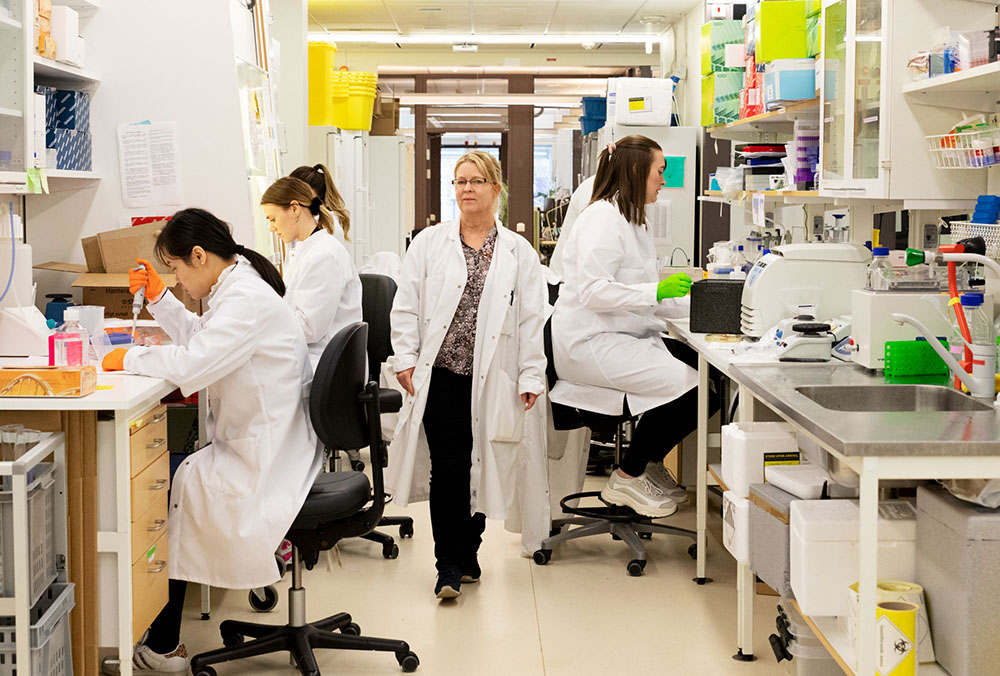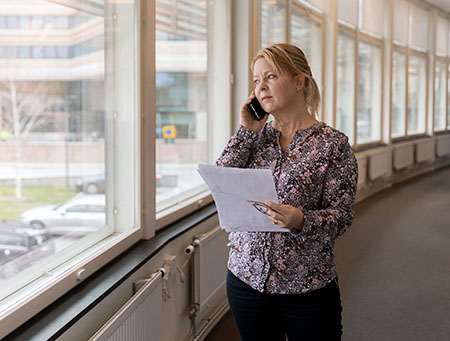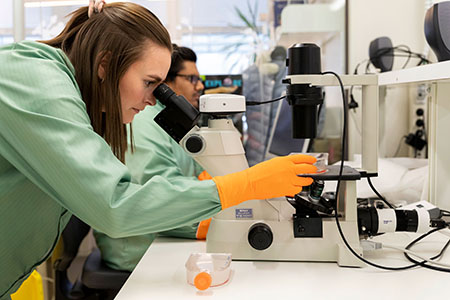Cancer cell research may be used to accelerate coronavirus testing

The turnaround time for coronavirus test results could soon be shortened by several days, with the help of technology that has been developed for cancer cell research.
Research groups at SciLifeLab are working closely with Region Stockholm to create a more efficient virus test. Led by KTH Professor and Head of Research Cecilia Williams, the researchers claim that standard hospital tests for COVID-19 could be performed far more quickly. They are now working to develop a new method of testing that will shorten the process from a couple of days to a couple of hours.

“Right now, personnel at hospital laboratories are getting overwhelmed by so many coronavirus tests, which means they have neither the time nor the resources to create more efficient solutions,” Williams says.
“We researchers, on the other hand, have every opportunity to provide a helping hand. Not only do we have the laboratories, but we are also very familiar with these types of tests and analyses.”
Since the 1990s, Williams’ work with this accelerated testing method has focused on cancer. Her team at SciLifeLab are now investigating whether genes in individual cancer cells and genes for the virus can be tested based on the same method.
Fewer steps in the process
In today’s standard tests, purified RNA from the genetic material of the virus is extracted from samples from COVID-19 patients. A synthesis is created for DNA fragments, which is then analysed with the aid of genetic engineering.

The first purification process can be totally eliminated in the new testing method.
“This means that you no longer need to wait for robotic and reagent processes, which there is a shortage of in any case," Williams says. "We expect to save both time and the need for valuable equipment with this method.”
Williams says the quicker tests could be started within a few weeks, providing that her team doesn’t lose work time due to illness. “The aim is to validate the method quickly, but if we encounter problems it can take longer.”
The thinking is that hospitals and clinics should be able to introduce the new tests with as few changes as possible to their current protocols and working methods. This will enable a rapid and safe switch, according to the researchers.
Next steps
“We now need to test and optimise this method, and it will be validated in parallel with ongoing coronavirus testing at hospitals. We will be able to see if it works after performing a hundred or so sample analyses and then comparing the results,” she says.
Sweden won’t be the only country that stands to gain from the method. Williams says that the protocol will be published internationally if the modified tests prove to work. Smaller laboratories and those with limited resources could also benefit.
“The next step would be to be able to perform these tests in smaller and more basic laboratories,” she says. “From there, we would aim to create faster and more secure small test kits, where virus tests could hopefully be done without the need for expensive instruments. There is an enormous need for these kinds of tests, not least in the developing world.”
She emphasises the value of KTH’s partnership with Region Stockholm, that means researcher groups can offer help and cooperation in urgent societal situations very quickly.
“Thanks to this partnership agreement, we researchers were able to find out quickly what the healthcare sector had the greatest need of right now, which meant we were able to start working on a solution to the problem straightaway.”
Text: Katarina Ahlfort
Photo: Susanne Kronholm
